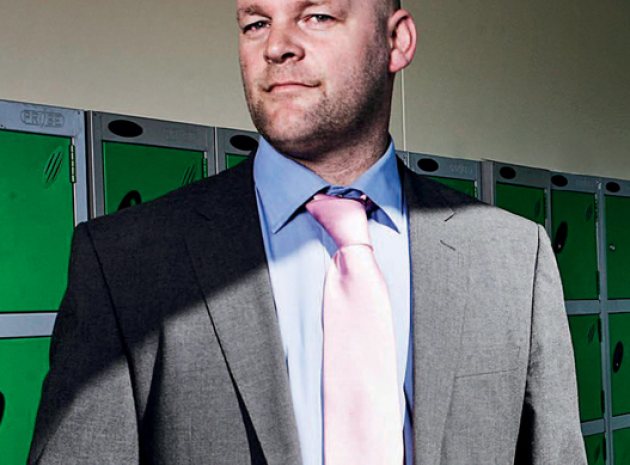I very much enjoyed school – always did. My secondary education took place at Earlsheaton High (it’s now Manor Croft Academy), which was just 300 yards away from our house. It wasn’t a big place, and the teachers already knew and liked my big sister, so I felt at home there, and cared for.
Although it may not be the impression I give off now, I was definitely a geek. I worked hard at my lessons, and wanted to learn. Yes, I was into sport – I played football, rugby and cricket – but I didn’t join in with all the ‘hanging out’ after school that the other kids were doing. From the age of seven or eight I was happy in the company of adults, anyway. I think it’s because I always knew that they could help me, and had knowledge and wisdom I could discover. It’s all part of this constant need I have (that any teacher has, really) to find out more. To remain curious. I still do enjoy spending time with people who are much older than I am.
I never had any qualms about being studious. I remember my dad sitting me down when I was ten, and telling me that if I passed the 11+, he and my mum would find the money to send me to the local, fee-paying grammar. I asked him why, and he said, “Because you’ll get a good education there, and we want you to be able to do your best.” But I knew that what was important for me was to be at my local school, with people I knew and liked – and my parents were happy for me to make that choice.
I was a bit of a pretentious little git, if I’m honest. I’d argue. With anyone; because I knew I was right. I don’t suppose that went down well with some adults – I certainly wouldn’t like it if a kid did it to me now (although of course, that’s because I am still, always, right). In this case, I believed, really strongly, that as long as I had a good attitude to learning, and worked hard, then I’d be able to achieve at the level that was right for me, whatever school I went to. And I still believe that; nothing that I’ve seen since has changed that perspective at all.
When Nick Hudson talks about ‘poverty of aspiration’ in schools across our region, I don’t disagree with him wholeheartedly. But there’s another side to it, too. Of course schools want kids to do well, for the results to be strong – that’s what we’re here for. But I still struggle with the idea that a child can come to us, barely able to read or write, and when the parents say, “he’s going to be a doctor”, we’re not supposed to counter that in any way at all, or try and manage those expectations. Aspirations need to come with a certain amount of pragmatism, otherwise they can put young people – and their teachers – under intolerable pressure. I’ve never stood up in an assembly and told the kids in front of me that if they work hard, they can do “whatever they want to do”. Because it’s just not true, and they deserve the truth. We need to help them find the path that’s right for them and discover their real strengths.
I know that a lot has changed in education over the thirty years or so since I started secondary school. But there’s plenty that’s stayed the same, too. People might expect me to say, for example, that the level of pastoral care is much better than it used to be – yet that’s not my experience. Yes, classrooms used to be shoutier, and more focused on discipline and punishment (although that doesn’t mean behaviour was any better). But we knew the teachers cared about us, and what happened to us, just like my staff care about the students at Thornhill today. What is different now is the level of accountability, which I happen to think is perfectly reasonable. Because in the past, when kids failed, it was their fault. There were no after school clubs, no revision groups, no grade predictions or tracking progress – you just taught them a subject for two years, then threw them into an exam hall and told them to get on with it. These days, that’s just not good enough – and quite right, too.
The fact is, teaching isn’t something you do, it’s who you are. It’s a bit like being an alcoholic – even if you stop drinking, the label still fits. If I packed in this job in five years’ time, whatever I did instead, I’d still be a teacher. Always.
- Browse by subject
- Maths & Science
- English & MFL
- Humanities
- The Arts
- I.C.T
- Outdoor Learning










